- Home
- George R. R. Martin
Old Mars Page 47
Old Mars Read online
Page 47
But he wasn’t about to give up yet.
Rac’s own whip shot through the air again, and as it whistled toward him, Jason managed to step to one side, almost—but not quite—managing to avoid it. The whip’s tip grazed his bare shoulder, sending a shock of pain across his chest, accompanied by the acrid tang of cauterized flesh. It was almost enough to make him lose his grip on his own weapon. But even a full charge wouldn’t have been fatal, assuming it had struck him in the same spot. A shock to a limb he could survive, but one to his trunk might well stop his heart from beating, and one to his head could fry his brain.
While Jason recovered his balance and lashed out with his own whip, Rac had already alighted on another roof, and by the time Jason’s whip cracked in empty space, Rac had leapt to the top of another ruined statue. The sand-sharks below circled hungrily, tracking their movements, and, overhead, a flock of leatherwing scavengers wheeled silently, patiently.
Rac’s whip swept forward again, and Jason jumped off the top of the column with as little force as he could manage, aiming to come down on top of a temple roof that jutted out of the sands at an angle. But he misjudged the distance, overcompensating for the strength of his jumps, and failing to take into account the diminished strength of his injured knee, and almost fell short. His arms pinwheeling on either side, as if he might somehow swim through the thin air, he just managed to grab hold of the roof’s edge with his free hand and dangled for an instant off the precipice, almost losing hold of his whip in the process.
As Jason scrambled to pull himself up onto the canted roof, he heard a whistle and crack, followed by a riot of pain in his left leg. He lost his grip on his whip, which went tumbling down to the sands below, where it was instantly swallowed whole by one of the sand-sharks. Jason collapsed forward onto the roof, his leg spasming and twitching violently, having received almost a full charge from Rac’s whip.
He managed to roll over onto his back, just as Rac’s whip whistled and popped above him once more. A second slower, and it would have caught him square in the face.
Jason was struggling into a sitting position as Rac landed lightly on the other side of the temple roof, some fifteen feet away. Rac’s whip snaked in his grip as he swung his arm back and forth, building up speed, slowly stalking toward the place where Jason lay.
“I should have killed you the first moment I laid eyes on you,” Rac said, swinging his whip in a wide arc overhead, slowly at first but faster with every rotation. “You’ve been nothing but a pain in my side ever since.”
Jason couldn’t stand, his left leg still rendered useless and twitching by the shock. His arms and hands still worked, but without a weapon in them, he was unable to strike back. Rac could keep his distance and hit Jason with his whip as many times as it took to kill him, or drive him off the roof, whichever came first. Of course, if Rac managed to hit Jason’s head, it would only require one shot.
Unless Jason managed to even the odds a bit.
“Good-bye, pink-skin,” Rac said, mandibles clattering with vicious laughter. “You won’t be missed!”
Rac swung his arm forward, then back, sending the tip of his whip snapping straight toward Jason’s head. Just at the last instant, as the whip whistled toward his face, Jason reached up with blinding speed and grabbed hold of the whip with both hands, gripping as tightly as he could manage.
Jason’s arms shuddered and twitched with the charge, but he kept hold of the whip. His mind reeled with the pain, but he held on.
“Fool,” Rac cursed, and yanked back on the whip with all of his strength.
Jason chose that moment to pull the whip toward him, and, in a test of brute strength, even in spite of the pain he was enduring, he came out on top. Rac swore angrily as the handle of the whip was pulled out of his grip.
Using the last of the strength and control in his now almost-entirely-numbed limbs, Jason swung the heavy handle of the whip back over his head, letting go when it was at the top of its arc. Rac’s whip sailed out over the ground, landing on the sands just long enough to draw the attention of a pair of sand-sharks, who each took hold of one end and devoured it down to the center in mere moments.
Jason flopped back onto the warm, dry surface of the temple roof, his arms shuddering uncontrollably on either side. He was having difficulty breathing, but somehow held on to consciousness.
A shadow fell across Jason’s face as Rac loomed over him.
“Pity we can never reach whatever world you come from, pink-skin.” Rac leaned closer. “If it is filled with the likes of you, we could conquer the lot in no time.”
Rac reached down, and his fingers closed on Jason’s shoulders. Rac lifted him partially off the surface of the roof, and began to drag him bodily toward the edge.
“Whatever afterlife awaits creatures like you,” Rac said, “I hope it is a disappointment to you.”
Rac leaned as he struggled with the weight of Jason’s body, but just as he approached the edge of the roof, Jason used the only limb still under his control. He kicked out, snapping one of Rac’s legs at the joint. As Rac howled in pain, Jason hooked his leg around Rac’s other leg, and pulled.
Still howling in pain and rage, Rac went plummeting over the edge. Jason collapsed back onto the roof, eyes closed, unable to move another muscle. But when Rac’s screams ended with a soft thud, quickly followed by the sound of gnashing teeth, Jason allowed himself a bitter smile.
Another shadow flitted across his face, and he felt sharp claws digging into his abdomen.
“Oh, come on,” he said. Surviving single combat with a devious enemy, only to be a meal for a scavenging leatherwing? Where was the justice?
But instead of feeling the pain of the leatherwing’s snout biting into his soft tissue, eating him alive, Jason felt a tug at his belt, as the leatherwing tried to get at a pouch that hung there.
He opened his eyes and managed a weary smile.
“You know, Bandit, if you’d shown up just a few minutes ago you might have helped me …”
The sun was just beginning to pink the sky in the east as the Argo caught sight of water, dead ahead.
“Are you certain about this course of action, captain?” Tyr asked, warily eyeing the leatherwing that perched on Jason’s shoulder.
“You can be a great people again,” Jason answered with a smile. “You just need a few obstacles moved out of your way.”
Tyr’s mandibles clacked with a dry chuckle. “I’ll signal the rest of the fleet.”
As his first officer went to relay his orders to the dozen ships that sailed in their wake, Jason looked across the sands at the network of canals just now coming into view.
It hadn’t been easy, but once he’d become head of Freehaven, he’d been able to convince enough of the other captains to back his plans. Now, months later, they were finally being put into motion. Praxis would be first. They would cut off the Hegemony from any outside trade, then launch strike teams in amphibious assault, arming Praxian dissidents while dismantling the Hegemony’s ability to suppress dissent.
It would not be easy, and it would not be quick, but in time the Hegemony would fall.
And once the people of Praxis knew the meaning of “freedom,” they would turn their attentions north, to Vend. And once the choke hold the Vendish wealthy had on the rest of the population was broken, Jason would continue sailing, routing out oppression wherever he went. He would sail clear across the world if he had to. But Jason wasn’t worried. He’d sailed around the world before.
IAN MCDONALD
British author Ian McDonald is an ambitious and daring writer with a wide range and an impressive amount of talent. His first story was published in 1982, and since then he has appeared with some frequency in Interzone, Asimov’s Science Fiction, and elsewhere. In 1989 he won the Locus “Best First Novel” Award for his novel Desolation Road. He won the Philip K. Dick Award in 1991 for his novel King of Morning, Queen of Day. His other books include the novels Out on Blue Six and Hearts, Han
ds and Voices; Terminal Café; Sacrifice of Fools; Evolution’s Shore; Kirinya; Ares Express; and Brasyl, as well as three collections of his short fiction, Empire Dreams, Speaking in Tongues, and Cyberabad Days. His novel River of Gods was a finalist for both the Hugo Award and the Arthur C. Clarke Award in 2005, and a novella drawn from it, “The Little Goddess,” was a finalist for the Hugo and the Nebula. He won a Hugo Award in 2007 for his novelette “The Djinn’s Wife,” won the Theodore Sturgeon Award for his story “Tendeléo’s Story,” and in 2011 won the John W. Campbell Memorial Award for his novel The Dervish House. His most recent books are The Dervish House, the starting volume of a YA series, Planesrunner, and another new novel, Be My Enemy. Born in Manchester, England, in 1960, McDonald has spent most of his life in Northern Ireland, and now lives and works in Belfast. He has a website at http://www.lysator.liu.se/~unicorn/mcdonald/.
In most recent wars, entertainers have visited the frontline troops, often putting themselves in considerable danger. None have ever visited a battlefield as strange, though, or performed for an audience as bizarre and inhuman, or put themselves in as much imminent danger, as do the hapless entertainers in the brilliant and slyly funny story that follows …
The Queen of the Night’s Aria
IAN MCDONALD
“GOD. STILL ON BLOODY MARS.”
Count Jack Fitzgerald, Virtuoso, Maestro, Sopratutto, stood at the window of the Grand Valley Hotel’s Heaven’s Tower Suite in just his shirt. Before his feet, the Sculpted City of Unshaina tumbled away in shelves and tiers, towers and tenements. Cable cars skirled along swooping lines between the carved pinnacles of the Royal Rookeries. Many-bodied stone gods roosted atop mile-high pillars; above them, the skymasters of the Ninth Fleet hung in the red sky. Higher still were the rim rocks of the Grand Valley, carved into fretwork battlements and machicolations, and highest of all, on the edge of the atmosphere, twilight shadows festooned with riding lights, were the ships of Spacefleet. A lift-chair borne by a squadron of Twav bobbed past the picture window, dipping to the wing beats of the carriers. The chair bore a human in the long duster coat of a civil servant of the Expeditionary Force. One hand clutched a diplomatic valise, the other the guylines of the lift-harness. The mouth beneath the dust goggles was open in fear.
“Oh God, look at that! I feel nauseous. You hideous government drone, how dare you make me feel nauseous first thing in the morning! You’ll never get me in one of those things, Faisal, never. They shit on you; it’s true. I’ve seen it. Bottom of the valley’s five hundred feet deep in Mars-bat guano.”
I come from a light-footed, subtle family, but for all my discretion, I could never catch Count Jack unawares. Tenors have good ears.
“Maestro, the Commanderie has issued guidelines. Mars-bats is not acceptable. The official expression is the Twav Civilization.”
“What nonsense. Mars-bats is what they look like, Mars-bats is what they are. No civilization was ever built on the basis of aerial defecation. Where’s my tea? I require tea.”
I handed the Maestro his morning cup. He took a long, slurping sip—want of etiquette was part of his professional persona. The Country Count from Kildare: he insisted it appear on all his billings. Despite the titles and honorifics, Count Jack Fitzgerald had passed the summit of his career, if not his self-mythologizing. The aristocratic title was a Papal honor bestowed upon his grandfather, a dully devout shopkeeper who nonetheless was regarded as little less than a saint in Athy. The pious greengrocer’s apples would have browned at his grandson’s flagrant disregard for religion and its moralizing. The Heaven’s Tower Suite’s Emperor-sized bed was mercifully undisturbed by another body. Count James Fitzgerald drained his cup, drew himself to his full six and a half feet, sucked in his generous belly, clicked out cricks and stiffnesses in his joints.
“Oh bless you, dear boy. None of the others can make tea worth a tinker’s piss.”
For the past six months, long before this tour of Mars, I had been slipping a little stiffener into the morning tea.
“And did they love us? Did strong men weep like infants and women ovulate?”
“The Joint Chiefs were enchanted.”
“Well, the enchantment didn’t reach as far as their bloody pockets. A little consideration wouldn’t have gone amiss. Philistines.”
A gratis performance at the Commanderie for the Generals and Admirals and Sky-marshals was more or less mandatory for all Earth entertainers playing the Martian front. The Army and Navy shows usually featured exotic dancers and strippers. From the piano, you notice many things, like the well-decorated Sky-lord nodding off during the Maestro’s Medley of Ould Irish Songs, but the news had reported that he had just returned from a hard-fought campaign against the Syrtian Hives.
“Ferid Bey wishes to see you.”
“That odious little Ottoman. What does he want? More money, I’ll warrant. I shan’t see him. He spoils my day. I abjure him.”
“Eleven o’clock, Maestro. At the Canal Court.”
Count Jack puffed out his cheeks in resignation.
“What, he can’t afford the Grand Valley? With the percentage he skims? Not that they’d let him in; they should have a sign: no dogs, uniforms, or agents.”
We couldn’t afford the Grand Valley either, but such truths are best entrusted to the discretion of an accompanist. I have talked our way out of hotel bills before.
“I’ll book transport.”
“If you must.” His attention was once again turned to the canyonscape of the great city of the Twav. The sun had risen over the canyon edge and sent the shadows of Unshaina’s spires and stacks and towers carved from raw rock chasing down the Great Valley. Summoned by the light, flocks of Twav poured from the slots of their roost-cotes. “Any chance of another wee drop of your particular tea?”
I took the cup and saucer from his outstretched hand.
“Of course, Maestro.”
“Thank you, dear boy. I would, of course, be lost without you. Quite quite lost.”
A hand waved me away from his presence.
“Thank you. And Maestro?”
He turned from the window.
“Trousers.”
For a big man, Count James Fitzgerald threw up most discreetly. He leaned out of the sky-chair, one quick convulsion, and it fell in a single sheet between the sculpted pinnacles of Unshaina. He wiped his lips with a large very white handkerchief and that was it, done. He would blame me, blame the sky-chair bearers, blame the entire Twav Civilization, but never the three cups of special tea he had taken while I packed for him, nor the bottle that was his perennial companion in the bedside cabinet.
Checkout had been challenging this time. I would never say so to Count Jack, but it had been a long time since I could parlay the Country Count from Kildare by name recognition alone.
“You are leaving the bags,” the manager said. He was Armenian. He had never heard of Ireland, let alone County Kildare.
“We will be returning, yes,” I said.
“But you are leaving the bags.”
“Christ on crutches,” Count Jack had exclaimed as the two sky-chairs set down onto the Grand Valley’s landing apron. “What are you trying to do, kill me, you poncing infidel? My heart is tender, tender I tell you, bruised by decades of professional envy and poisonous notices.”
“It is the quickest and most direct way.”
“Swung hither and yon in a bloody Bat-cab and no money at the end of it, as like,” Count Jack muttered as he strapped in and the Twavs took the strain and lifted. He gave a faint cry as the sky-chair swung out over the mile-deep drop to the needles of the Lower Rookeries, like an enfilade of pikes driven into the red rock of the Grand Valley. He clung white-knuckled to the guylines, moaning a little, as the Twav carriers swayed him between the scurrying cableway gondolas and around the many-windowed stone towers of the roosts.
I rather enjoyed the ride. My life has been low in excitements—I took the post of accompanist to the Maestro as
an escape from filing his recording royalties, which was the highest entry position in the industry I could attain with my level of degree in music. Glamorous it was, exciting, no. Glamour is just another work environment. One recovers from being star-struck rather quickly. My last great excitement had been the night before we left for Mars. Ships! Space travel! Why, I could hardly sleep the night before launch. I soon discovered that space travel is very much like an ocean cruise, without the promenade decks and the excursions, and far, far fewer people. And much, much worse food. However tedious and braying the company for me, I derived some pleasure from the fact that for them it was three months locked in with Count Jack.
I have a personal interest in this war. My grandfather was one of the martyrs who died in the opening minutes of the Horsell Common invasion. He was the first generation of my family to be born in England. He had been at prayer in the Woking Mosque and was consumed by the heat ray from the Uliri War Tripod. Many thousands died that day, and though it has taken us two generations to master the Uliri technology to keep our skies safe, and to prepare a fleet to launch Operation Enduring Justice, the cry is ever fresh: remember Shah Jehan! I stood among the crowds on that same Horsell Common around the crater, as people gathered by the other craters of the invasion, or on hilltops, on beaches, riverbanks, rooftops, holy places, anywhere with a view of open sky, to watch the night light up with the drives of our expeditionary fleet. The words on my lips, and the lips of everyone else on that cold November night, were Justice, Justice, but in my heart, it was Remember Shah Jehan!
Rejoice! Rejoice! our Prime Minister told us when our drop-troopers captured Unshaina, conquered the Twav Civilization, and turned the Grand Valley into our Martian headquarters and munitions factory. It’s harder to maintain your patriotic fervor when those spaceships are months away on the far side of the sun, and no one really believes the propaganda that the Twav were the devious military hive-masterminds of the Uliri war machine. Nor, when that story failed, did we swallow the second serving of propaganda: that the Twav were the enslaved mind-thralls of the Uliri, whom we had liberated for freedom and democracy. A species that achieves a special kind of sentience when it roosts and flocks together seems to me to embody the very nature of the demos. The many-bodied gods atop the flute-thin spires of Unshaina represent the truth that our best, our most creative, our most brilliant, may be all the divinity we need.

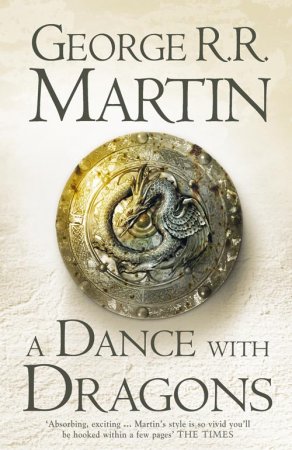 A Dance with Dragons
A Dance with Dragons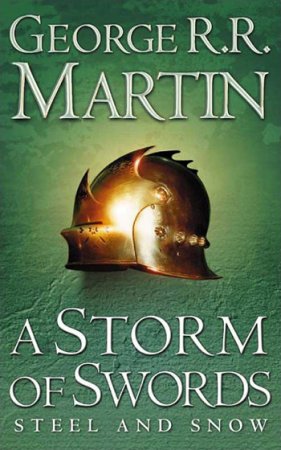 A Storm of Swords
A Storm of Swords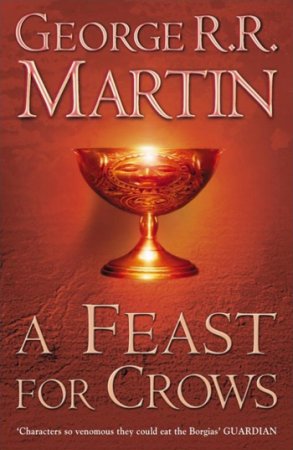 A Feast for Crows
A Feast for Crows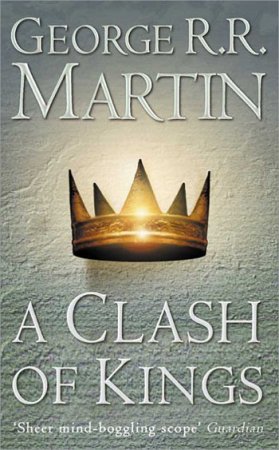 A Clash of Kings
A Clash of Kings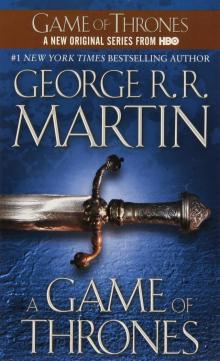 A Game of Thrones
A Game of Thrones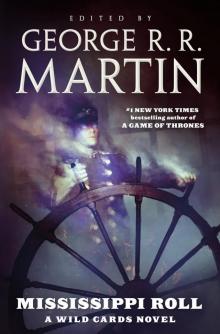 Mississippi Roll
Mississippi Roll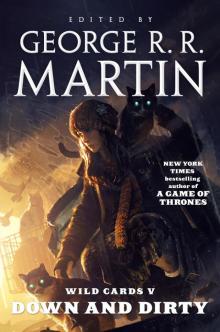 Wild Cards V: Down and Dirty
Wild Cards V: Down and Dirty Busted Flush
Busted Flush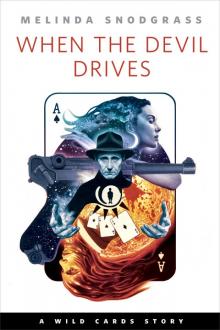 When the Devil Drives
When the Devil Drives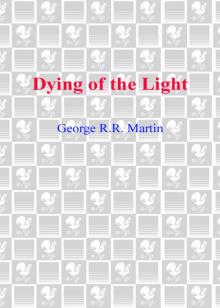 Dying of the Light
Dying of the Light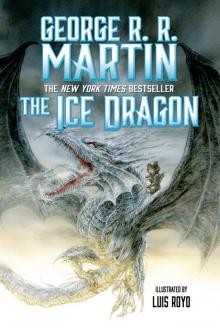 The Ice Dragon
The Ice Dragon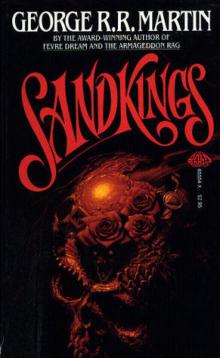 Sandkings
Sandkings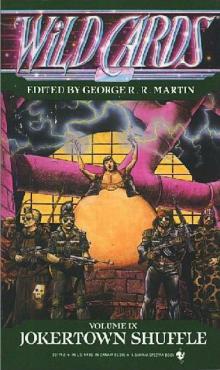 Jokertown Shuffle
Jokertown Shuffle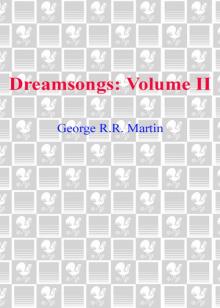 Dreamsongs. Volume II
Dreamsongs. Volume II Deuces Down
Deuces Down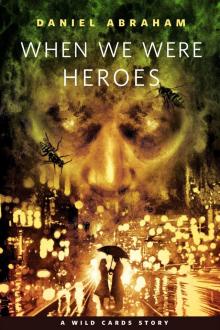 When We Were Heroes
When We Were Heroes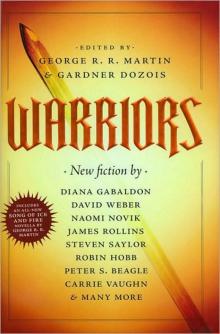 Warriors
Warriors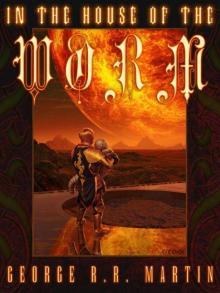 In the House of the Worm
In the House of the Worm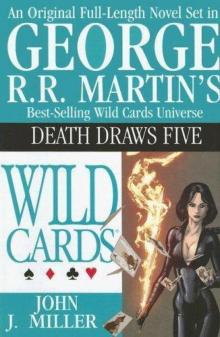 Death Draws Five
Death Draws Five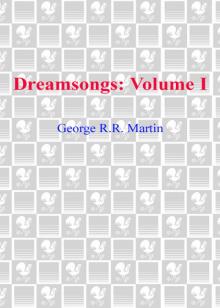 Dreamsongs. Volume I
Dreamsongs. Volume I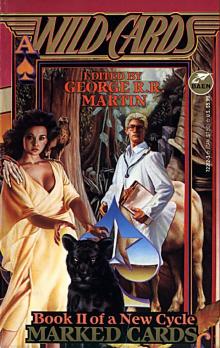 Marked Cards
Marked Cards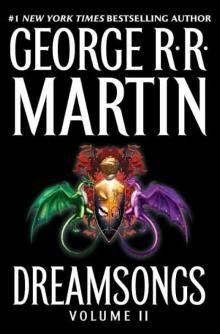 Dreamsongs
Dreamsongs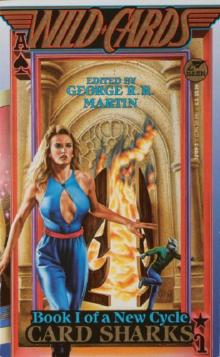 Card Sharks
Card Sharks Dangerous Women
Dangerous Women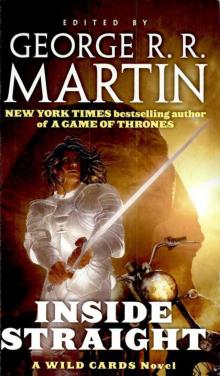 Inside Straight
Inside Straight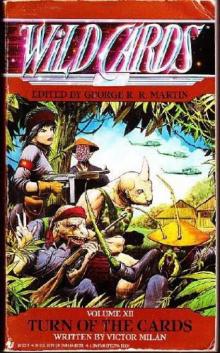 Turn of the Cards
Turn of the Cards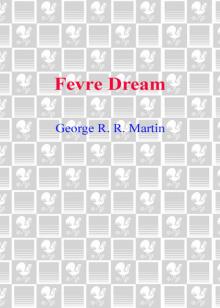 Fevre Dream
Fevre Dream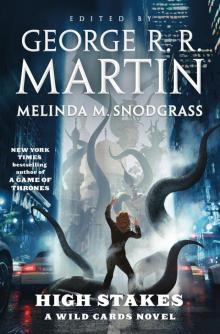 High Stakes: A Wild Cards Novel
High Stakes: A Wild Cards Novel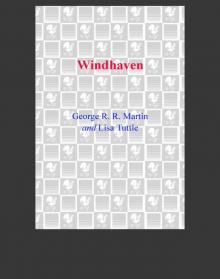 Windhaven
Windhaven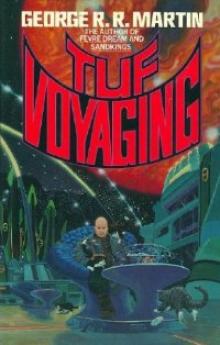 Tuf Voyaging
Tuf Voyaging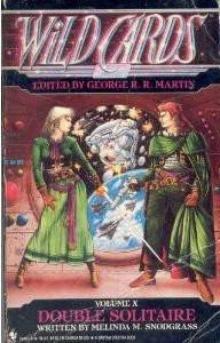 Double Solitaire
Double Solitaire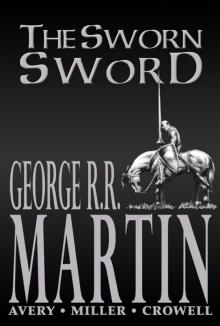 The Sworn Sword
The Sworn Sword Low Chicago
Low Chicago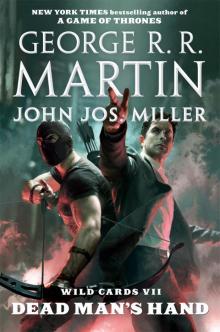 Dead Man's Hand
Dead Man's Hand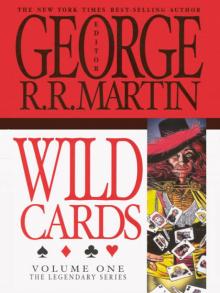 Wild Cards
Wild Cards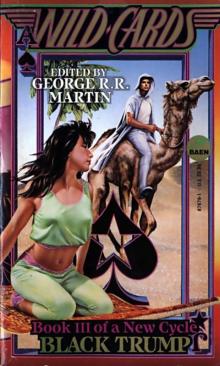 Black Trump
Black Trump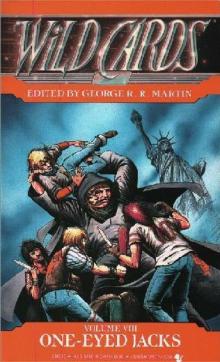 One Eyed Jacks
One Eyed Jacks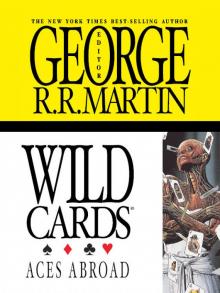 Wild Cards: Aces Abroad
Wild Cards: Aces Abroad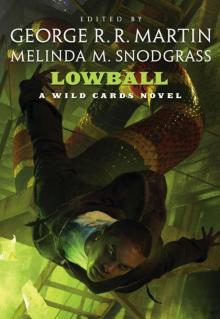 Lowball: A Wild Cards Novel
Lowball: A Wild Cards Novel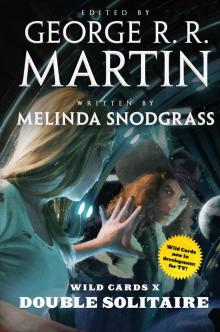 Double Solitaire (2019 Edition)
Double Solitaire (2019 Edition)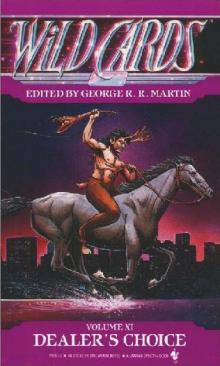 Dealer's Choice
Dealer's Choice Ace in the Hole
Ace in the Hole A Song for Lya: And Other Stories
A Song for Lya: And Other Stories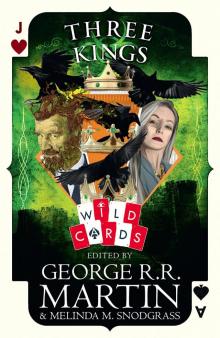 Three Kings
Three Kings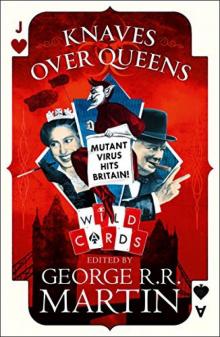 Knaves Over Queens
Knaves Over Queens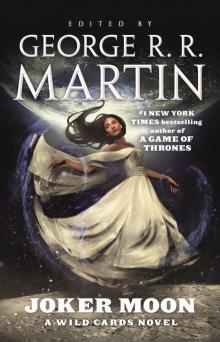 Joker Moon
Joker Moon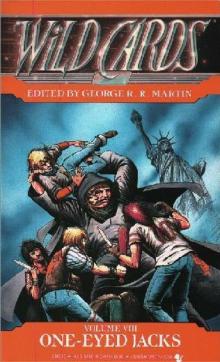 One Eyed Jacks wc-8
One Eyed Jacks wc-8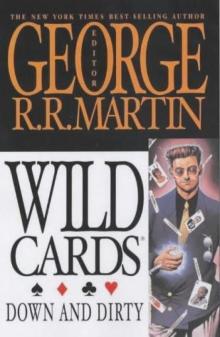 Down And Dirty wc-5
Down And Dirty wc-5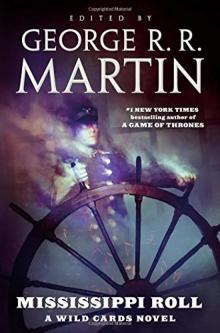 Mississippi Roll_A Wild Cards Novel
Mississippi Roll_A Wild Cards Novel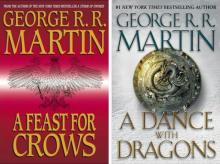 A Feast for Dragons
A Feast for Dragons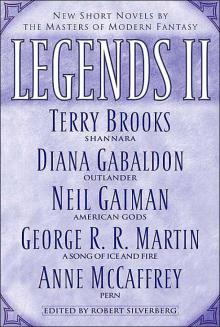 The Sworn Sword ttodae-2
The Sworn Sword ttodae-2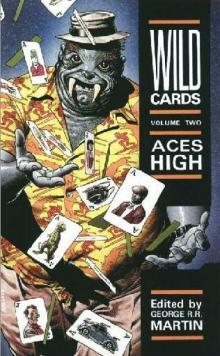 Aces High wc-2
Aces High wc-2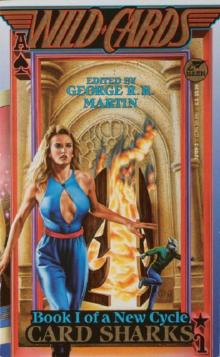 Wild Cards 13 : Card Sharks
Wild Cards 13 : Card Sharks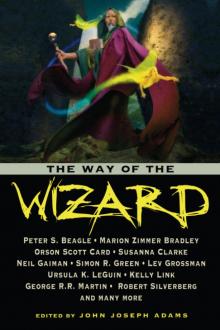 Way of the Wizard
Way of the Wizard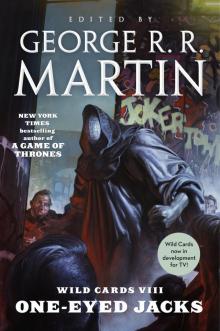 Wild Cards VIII: One-Eyed Jacks
Wild Cards VIII: One-Eyed Jacks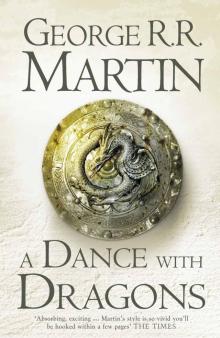 A Dance With Dragons: Book 5 of A Song of Ice and Fire (Song of Ice & Fire 5)
A Dance With Dragons: Book 5 of A Song of Ice and Fire (Song of Ice & Fire 5) The Princess and The Queen, Or, The Blacks and The Greens (a song of ice and fire)
The Princess and The Queen, Or, The Blacks and The Greens (a song of ice and fire)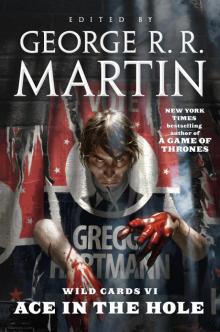 Wild Cards VI--Ace in the Hole
Wild Cards VI--Ace in the Hole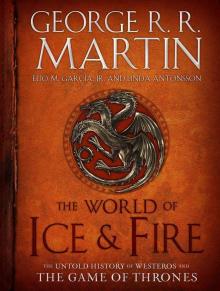 The World of Ice & Fire: The Untold History of Westeros and the Game of Thrones (A Song of Ice and Fire)
The World of Ice & Fire: The Untold History of Westeros and the Game of Thrones (A Song of Ice and Fire)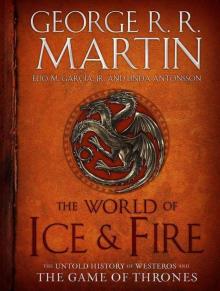 The World of Ice & Fire: The Untold History of Westeros and the Game of Thrones
The World of Ice & Fire: The Untold History of Westeros and the Game of Thrones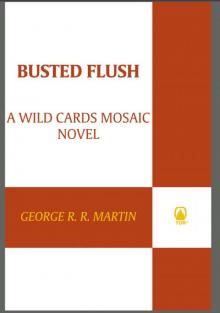 Busted Flush wc-19
Busted Flush wc-19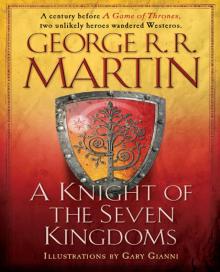 A Knight of the Seven Kingdoms
A Knight of the Seven Kingdoms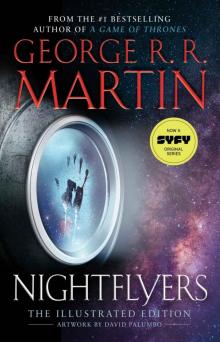 Nightflyers: The Illustrated Edition
Nightflyers: The Illustrated Edition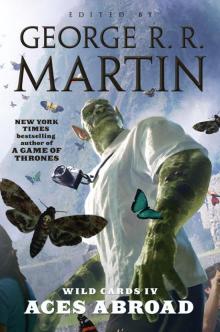 Wild Cards IV
Wild Cards IV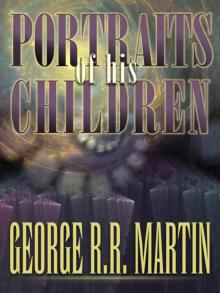 Portraits of His Children
Portraits of His Children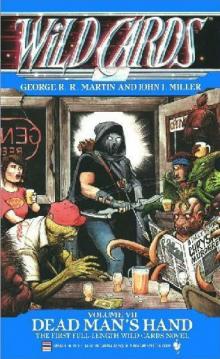 Dead Mans Hand wc-7
Dead Mans Hand wc-7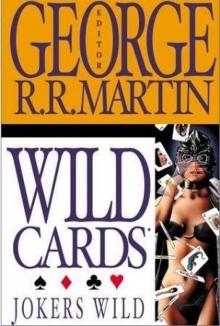 Jokers Wild wc-3
Jokers Wild wc-3 The Lonely Songs of Laren Dorr
The Lonely Songs of Laren Dorr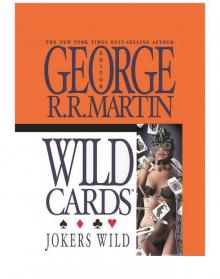 Wild Cards III: Jokers Wild
Wild Cards III: Jokers Wild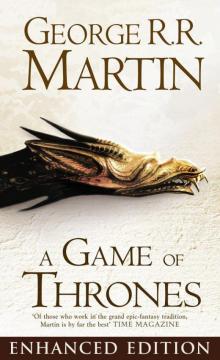 A Game of Thrones Enhanced Edition
A Game of Thrones Enhanced Edition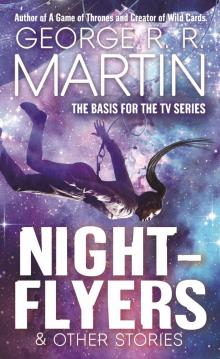 Nightflyers & Other Stories
Nightflyers & Other Stories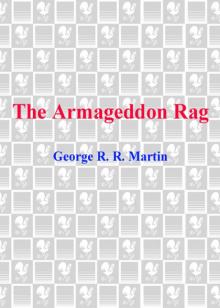 Armageddon Rag
Armageddon Rag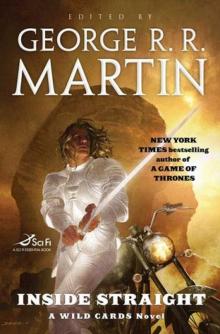 Wild Cards: Inside Straight
Wild Cards: Inside Straight A Song for Lya
A Song for Lya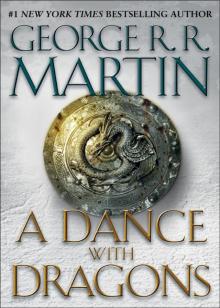 A Dance with Dragons: A Song of Ice and Fire: Book Five
A Dance with Dragons: A Song of Ice and Fire: Book Five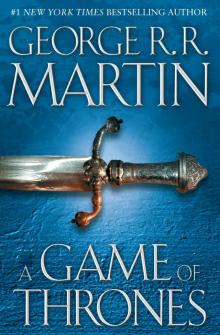 Song of Fire & Ice 01 - A Game of Thrones
Song of Fire & Ice 01 - A Game of Thrones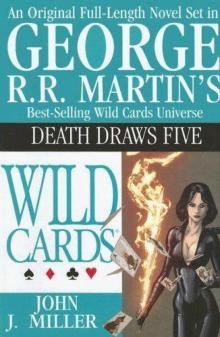 Death Draws Five wc-17
Death Draws Five wc-17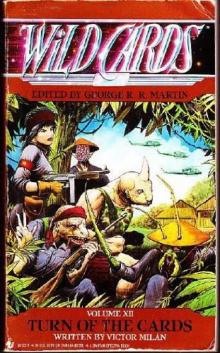 Turn of the Cards w-12
Turn of the Cards w-12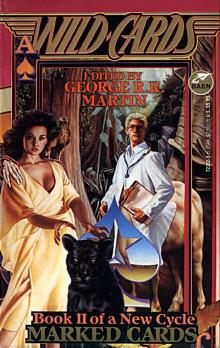 Wild Cards 14 - Marked Cards
Wild Cards 14 - Marked Cards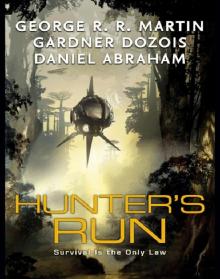 Hunter's Run
Hunter's Run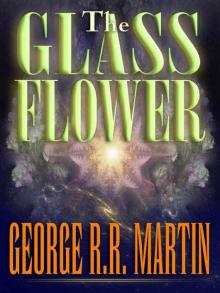 The Glass Flower
The Glass Flower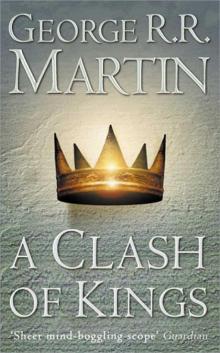 A Clash of Kings asoiaf-2
A Clash of Kings asoiaf-2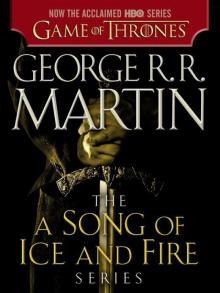 A Game of Thrones 5-Book Bundle: A Song of Ice and Fire Series: A Game of Thrones, A Clash of Kings, A Storm of Swords, A Feast for Crows, and A Dance with Dragons (Song of Ice & Fire)
A Game of Thrones 5-Book Bundle: A Song of Ice and Fire Series: A Game of Thrones, A Clash of Kings, A Storm of Swords, A Feast for Crows, and A Dance with Dragons (Song of Ice & Fire)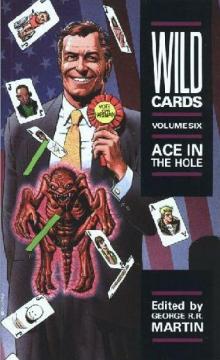 Ace In The Hole wc-6
Ace In The Hole wc-6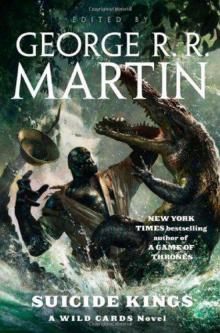 Suicide Kings wc-20
Suicide Kings wc-20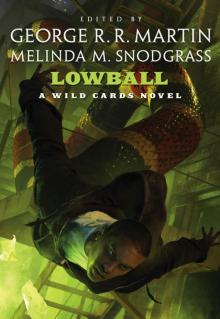 Lowball
Lowball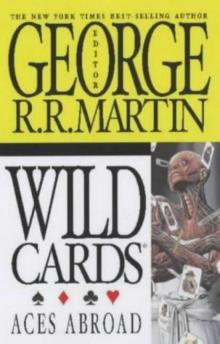 Aces Abroad wc-4
Aces Abroad wc-4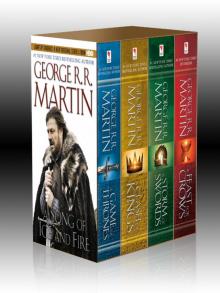 George R. R. Martin's a Game of Thrones 4-Book Bundle
George R. R. Martin's a Game of Thrones 4-Book Bundle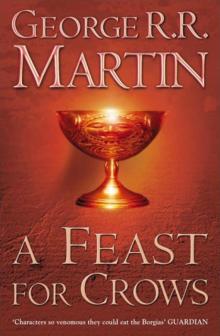 A Feast for Crows asoiaf-4
A Feast for Crows asoiaf-4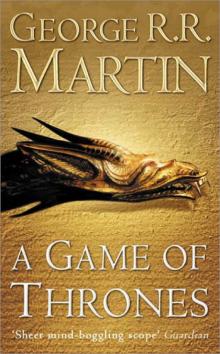 A Game of Thrones asoiaf-1
A Game of Thrones asoiaf-1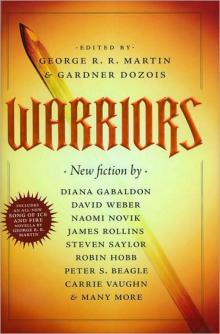 The Mystery Knight ttodae-3
The Mystery Knight ttodae-3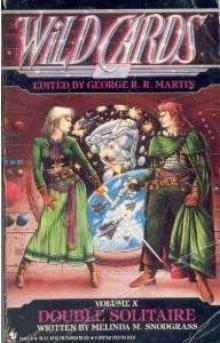 Double Solitaire w-10
Double Solitaire w-10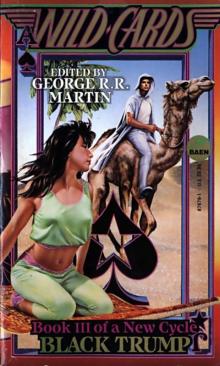 Wild Cards 15 - Black Trump
Wild Cards 15 - Black Trump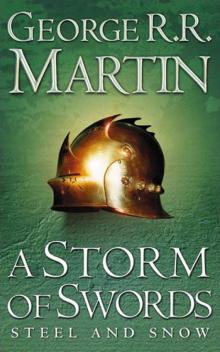 A Storm of Swords asoiaf-3
A Storm of Swords asoiaf-3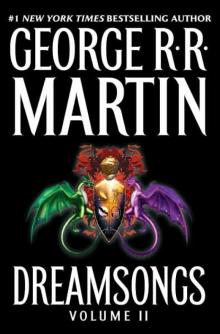 The Hedge Knight ttodae-1
The Hedge Knight ttodae-1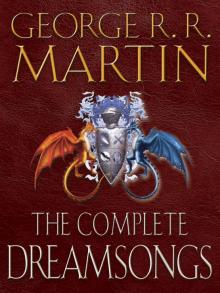 Dreamsongs 2-Book Bundle
Dreamsongs 2-Book Bundle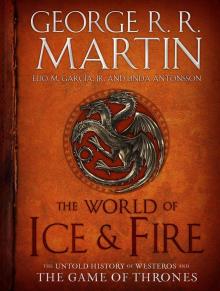 The World of Ice & Fire
The World of Ice & Fire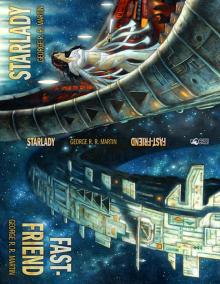 Starlady & Fast-Friend
Starlady & Fast-Friend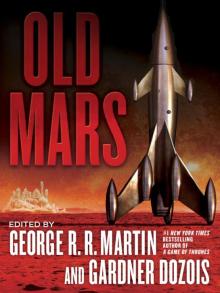 Old Mars
Old Mars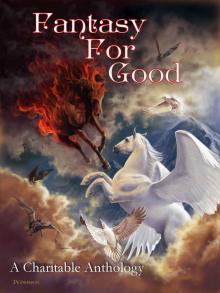 Fantasy For Good: A Charitable Anthology
Fantasy For Good: A Charitable Anthology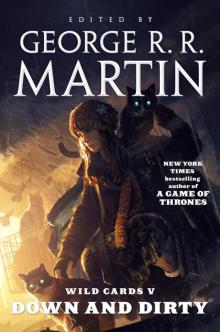 Wild Cards V
Wild Cards V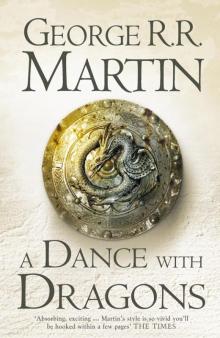 A Dance with Dragons asoiaf-5
A Dance with Dragons asoiaf-5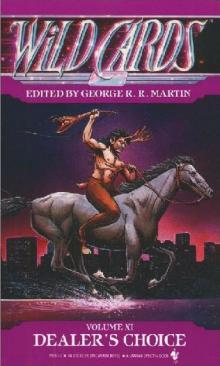 Dealer's Choice w-11
Dealer's Choice w-11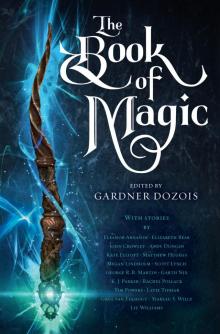 The Book of Magic
The Book of Magic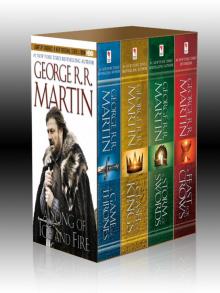 A Game of Thrones 4-Book Bundle
A Game of Thrones 4-Book Bundle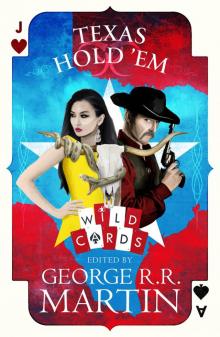 Texas Hold 'Em
Texas Hold 'Em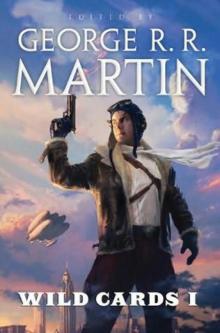 Wildcards wc-1
Wildcards wc-1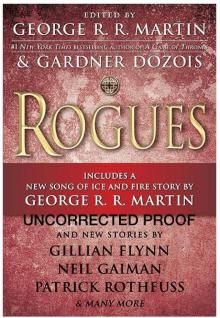 Rogues
Rogues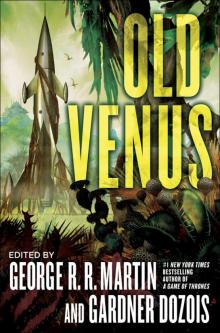 Old Venus
Old Venus